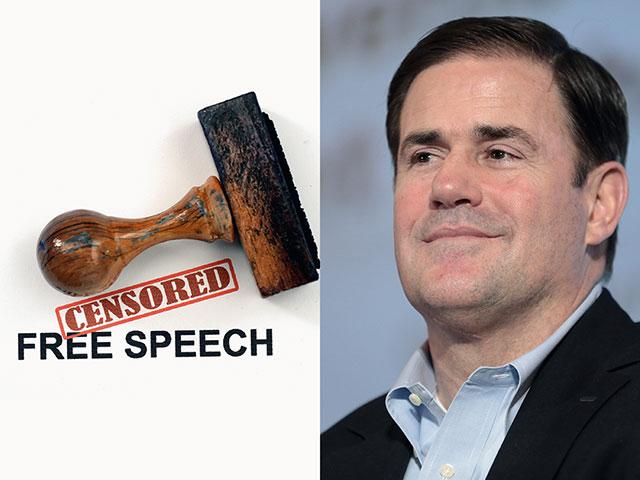Attempts to stifle or censor free speech in the United States are constant. The latest comes from the Republican governor of Arizona.
This week state legislators approved a bill that would protect the free speech rights of journalism students. Members of both the Arizona House and Senate felt it was unfair and inappropriate for the journalists to be penalized for what they write or say.
The legislation would have forbidden school officials from restricting the distribution of media and imposing disciplinary measures in retribution for critical content.
Nationwide, conservative and Christian students complain their speech and ideas are often suppressed by liberal professors and administrators. On some campuses (Berkley) leftists have turned to violence to impose their politically correct thought and speech on students.
Surprising is that a conservative Republican governor would back away from his earlier commitments to protect free speech. Governor Doug Ducey vetoed the legislation saying the bill would, "create unintended consequences, especially on high school campuses where adult supervision and mentoring is most important."
Governor Ducey is up for re-election soon. He may feel the need to garner more support from Arizonans who feel journalists and members of the media are going too far in their reporting.
What do Arizona journalism students and others think of the governor's veto and the effort to suppress free speech rights on campus?
The Global Lane got the inside scoop from Campus Reform's Hannah Scherlacher Take a look:
Many on the American left—and some on the political right try to silence speech they deem offensive. But how we respond to speech is totally subjective. For example: when someone takes the Lord's name in vain, I am offended, yet many people don't seem to blink an eye when people utter such words.
Sure, we live in a time of fake news—Donald Trump will give you many examples of untruthful media reports about him. But some are true, and while the president may find some remarks offensive, the U.S. Constitution guarantees us the right to speak our minds.
If our speech offends, we'll be criticized and may lose our job, or damage our reputation.
If our words are untruthful, we may face a lawsuit for libel or slander.
If our speech incites people to acts of violence, we may get arrested.
Yes, there are consequences to free speech, but in America we have the right to speak openly and freely and then we let the chips fall where they may. That right should not be denied anyone—including journalists--whether in the public square, at high schools, or on college campuses.










